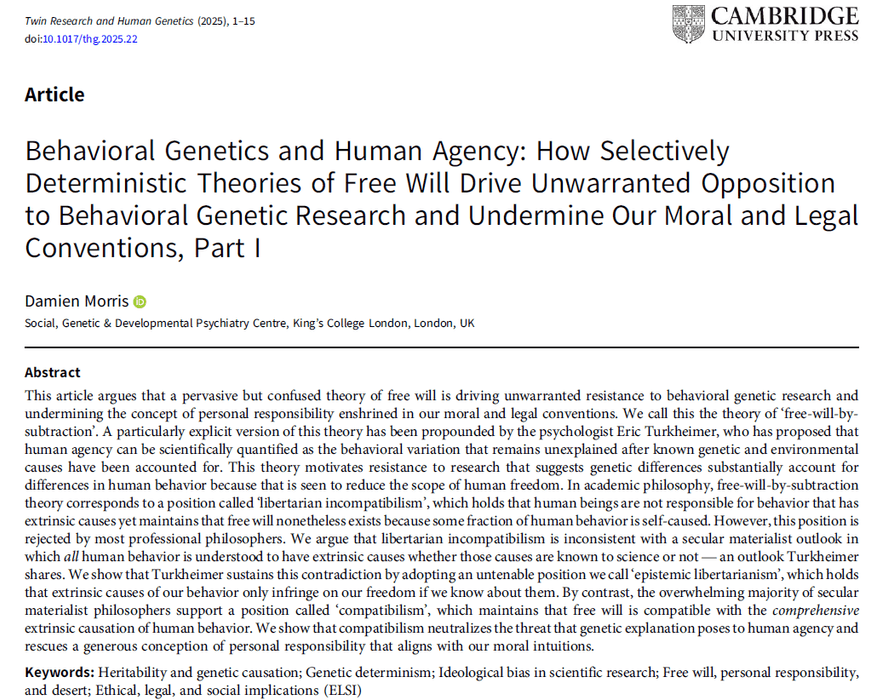Sublime
An inspiration engine for ideas
Tweaking species isn’t new...
... Humans have been selectively breeding animals for thousands of years.
GloFish — fish genetically modified with the GFP protein — are already sold in pet stores across the US.
... Humans have been selectively breeding animals for thousands of years.
GloFish — fish genetically modified with the GFP protein — are already sold in pet stores across the US.
- Yorktown Technologies, which developed the fish, sold the company for $50m in 2017.
- But some of the fish have escaped from farms in Brazil and
🐇 Pets of the future
Inheritance: How Our Genes Change Our Lives--and Our Lives Change Our Genes
amazon.com
I’ve already explained the most obvious reason that this supposed freedom seems profoundly coercive: You can, with some effort, rebel against the ways you were raised. (Consider, say, the number of lapsed Catholics, despite all the combined and ferocious efforts of parents and nuns.) But you can’t rebel against the genes implanted inside you: The
... See moreBill McKibben • Falter: Has the Human Game Begun to Play Itself Out?
Today, anyone can go to PersonalGenomes.org and view my public profile,
Ed Regis • Regenesis: How Synthetic Biology Will Reinvent Nature and Ourselves

Part 1 of my three-part monograph ‘Behavioral Genetics and Human Agency’ is now live at Twin Research and Human Genetics. The subtitle and abstract (pictured) should give you a quick sense of what it’s about. An Open Access link is provided at the end of this thread. 1/10
Being told you have really good or bad genes for (enter sport, endeavor etc) shapes the outcome in the direction you expect. Genes definitely constrain outcomes especially at the extremes (think height and pro basketball) but often genetic knowledge can help or hinder. https://t.co/Ms1eDMiKJ4
Andrew D. Huberman, Ph.D.x.comDisability scholars are now pushing past the medical-social binary and toward—as the critic Jonathan Sterne helpfully puts it—“a conception of biology as having historical dimensions, and history as having biological dimensions.”